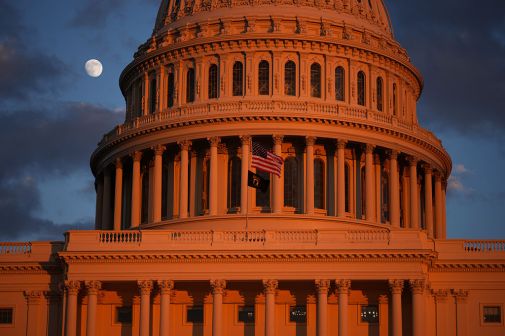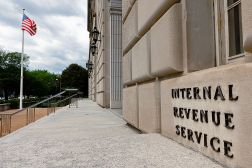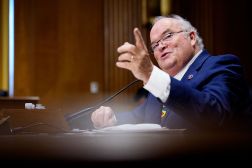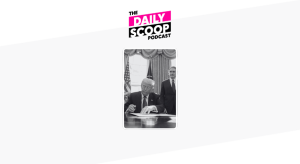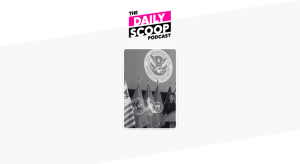Copyright Register: IT outage shows why agency must modernize
U.S. Register of Copyrights Maria Pallante still grimaces at the mention of a major IT outage that struck her agency this summer.
What started as routine data center maintenance shuttered critical Library of Congress IT systems — including those at the Copyright Office — for nine days. Pallante said it forced her staff, who were unable to fix the problems directly, to field angry calls from customers unable to register their songs, books or other creative works online.
“This is an illustration of the fact that my IT, and my databases, are in the hands of people who are not statutorily responsible for that information,” she told FedScoop, speaking in a Copyright Office conference room lined with the portraits of past registers. She added, “I just really feel that people who work on Copyright Office IT should be in the Copyright Office, in the mission, working side by side with the other experts.”
It’s a point alluded to in the Copyright Office’s five-year strategic modernization plan, finalized and released Tuesday. The 65-page document includes overarching goals that span from building a robust and flexible technology enterprise to recruiting a diverse workforce. But woven into the report is the need to tailor the office’s technology to the needs of the people it serves.
“I think the main message of this is that the Copyright Office has to be directly involved in technology — for one, we can’t administer the law without having control of tools to allow us to do that,” said Pallante, who spent nearly 10 years as intellectual property counsel and director of the licensing group at the Guggenheim Museums before coming to her current job in 2011.
As it stands, the Copyright Office is part of the Library of Congress, which controls its IT, budget and various other functions. It’s an arrangement that’s been called into question by government watchdogs and the intellectual property community alike. Just last month the conservative Hudson Institute issued a paper calling for Congress to remove the office from the Library.
Legal commentators have mulled whether to make the Copyright Office an independent agency, give it more authority within the Library of Congress or even place it within the Patent and Trademark Office, a separate agency within the Commerce Department. The strategic plan stops short of making a recommendation for the legal structure of the Copyright Office, instead punting to Congress.
Whatever its place in the org chart, the report calls for an enterprise IT system that is solely devoted to the needs of the office, metadata standards for copyright records to make them more accessible, an overhaul for the architecture of Copyright.gov, a more modern digital system for registering copyrights and various other tech improvements. In the coming months, Pallante said the office would reach out to the customers it serves to get more in-depth feedback on how these tech systems would look.
Pallante acknowledged that some of these changes would require funding and acts of Congress.
“We are going to start implementing the plan to the degree we can in the current environment, with the current IT and the current funding levels,” she said. “Some of that means that we are going to start planning in detail but we may not be able to implement. And some of it, we’ll do the best we can.”
Pallante herself is careful to not malign the Library of Congress. But she said giving the Copyright Office autonomy would be best for both institutions. Overall, the goal is to improve efficiency in the agency. And modernizing the copyright system, she said, is crucial for supporting the trillion-dollar industry it helps support.
“If we don’t administer the law competently and plan for the future, we’re not only not helping the copyright community and the public, we become a barrier,” she said.
